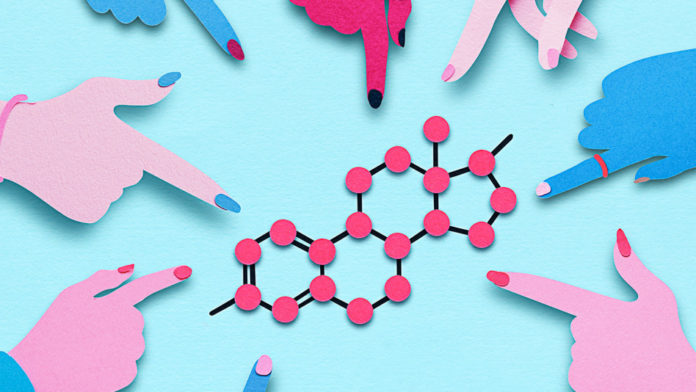‘You’re so hormonal’ has long been used as an insult to call women out on being emotional, but here’s the thing: hormones don’t just stop and start like that. Roughly, there are around a hundred hormones constantly flowing through our bodies at fluctuating levels, and they’re necessary for keeping our cells and organs alive. A women’s reproductive hormones will fluctuate throughout her monthly cycle, which could mean some serious changes to how you feel both physically and emotionally. Increasingly, we’re beginning to realize that our hormones can often affect how effectively we exercise. Experts are beginning to understand the influence that they have on fitness and are paying more attention to hormones than ever before.
How Hormones Impact Exercise
Exercise performance is affected by more than our muscles, bones, and joints. Hormones also play a key part in your ability to exercise effectively, and how well your body can recover after a workout. For instance, testosterone is essential for supporting the tissue-building actions of protein synthesis and cortisol is essential for activating lipolysis when fat is burned for energy. Epinephrine, or adrenaline, burns carbohydrates for energy. The more balanced your hormones, the more effective each one will be in terms of the natural part that they play in your body for exercise performance and recovery.
Natural Hormonal Shifts
Hormone levels are anything but constant. In the morning, testosterone and cortisol tend to be at their highest, and at their lowest later into the night. Some hormonal influences can even impact the risk of injury in women who play sports, such as alterations in knee-joint laxity at certain points during the menstrual cycle. The stress of exercise can also affect hormone levels, causing certain chemicals such as human growth factor, insulin-like growth factor 1, and epinephrine to temporarily rise.
Supplementing with Hormones
Supplementing with hormones can be effective for a wide range of things and is fairly common. Men whose age-related hormone drops, hypogonadism, or simply a desire to build muscle more effectively may undergo testosterone therapy, while women might opt for hormone replacement therapy to cope with menopause symptoms, which usually involves taking one of or a combination of progesterone, estrogen, DHEA or testosterone. Sermorelin, or human growth hormone, can be taken in supplement form for a range of benefits including better sleep, which can impact the effect exercise has on the body in a positive way, plus increased strength and lean muscle. If you are interested in learning more, check out this review of how sermorelin therapy works.
Supporting Your Hormones Naturally
Even if you don’t want to take supplements, there are many things that you can do to improve your hormonal balance and health, which in turn can have a positive effect when exercising and allow you to get the most from your workouts. For example, men who experience low testosterone levels with exercising training can help themselves by increasing the amount of rest-recovery time between workouts, reducing training intensity, and increasing their consumption of food to maintain a caloric balance. It can also help to ensure that you have a diet that is rich in calcium and spends more time outside in order to get more Vitamin D, which can improve bone health and support hormonal balance.
If your hormones are unbalanced, chances are you will see an effect on your ability to exercise well, your energy levels, and how quickly your body can recover from a workout. Hormonal imbalances might make it harder for you to get the best results from working out. You can supplement various different hormones to restore balance or promote hormone health with a healthy, balanced lifestyle and diet.






















